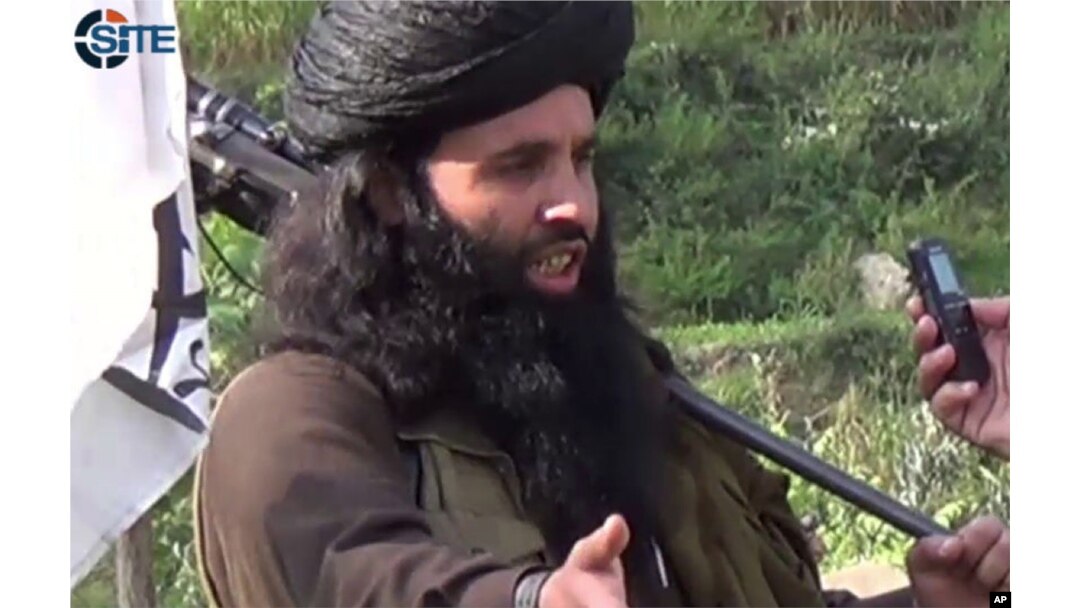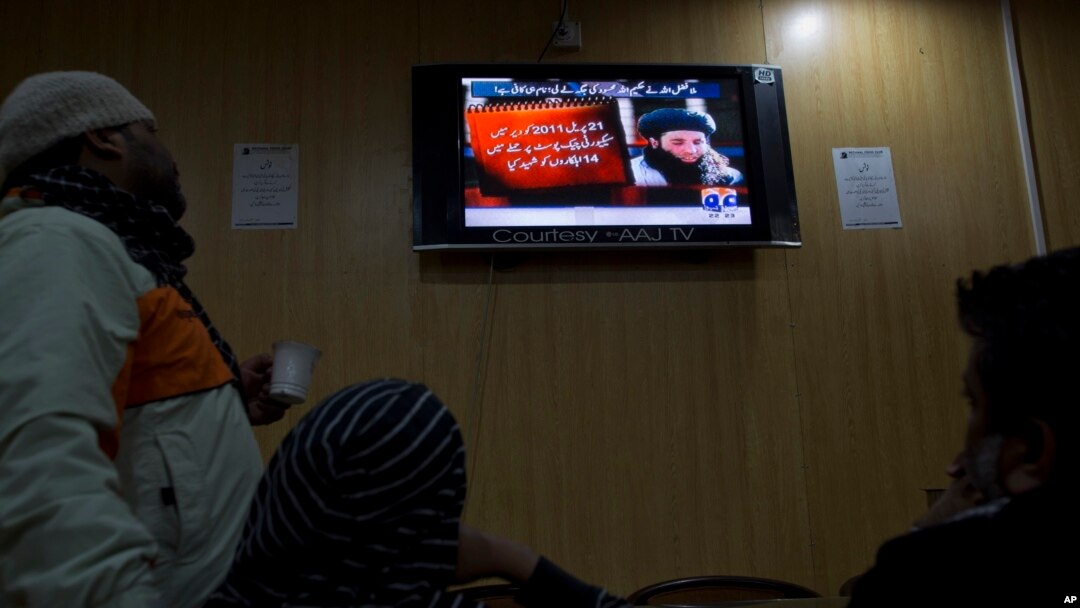Pakistan has confirmed its most wanted militant leader was killed in a recent U.S. drone strike in eastern Afghanistan.
The June 13 strike in the Afghan border province of Kunar eliminated Mullah Fazlullah, the head of the outlawed Pakistani Taliban, along with several key militant commanders.
U.S. officials at the time confirmed that missiles fired from an unmanned aircraft hit a “high value” target, but they shared no other details.
Afghan President Ashraf Ghani last Friday telephoned Pakistani leaders to confirm the attack killed Fazlullah.
Islamabad cautiously welcomed the action, but withheld its own official details on whether the strike had killed Fazlullah for nearly a week.
“The killing of the terrorist Mullah Fazlullah, who has been directing terrorism against Pakistan, is a significant development in fighting terrorism,” Foreign Ministry spokesman Mohammad Faisal said.
“The news of his death has been received in Pakistan with relief, especially by the families whose loved ones were victims of TTP’s (Pakistani Taliban) terrorist attacks.” Faisal added.
The Pakistani Taliban is blamed for killing tens of thousands of people, including security forces, in suicide and targeted terrorist attacks during the past decade in Pakistan.
The U.S. State Department had offered a $5 million reward for the militant leader. Fazlullah was accused of directing numerous high-profile attacks against American and Pakistani targets since he was appointed the group's leader in 2013.
U.S. and Pakistani officials say he was also behind a December 2014 attack on the Army Public School in Peshawar in which 151 people were killed, including more than 130 children.

FILE - This undated image provided the SITE Intel Group, an American private terrorist threat analysis company, Mullah Fazlullah is seen being interviewed in Pakistan.
No sanctuary
Islamabad maintains leaders of the militant group have taken refuge in “ungoverned spaces” in border areas of Afghanistan and are orchestrating terrorist attacks against Pakistan from those sanctuaries.
Kabul and Washington allege leaders of the Afghan Taliban are using sanctuaries on Pakistani soil to plan and sustain insurgent activities inside Afghanistan.
U.S. officials acknowledge Pakistan’s successes against terrorists linked to the Pakistani Taliban, but say Pakistani security forces are not targeting members of the Afghan Taliban.
Senior U.S. State Department diplomat Alice Wells reiterated Washington’s concerns while testifying Wednesday before the House Foreign Affairs Committee.
“We treat all terrorists enemies of Pakistan as our terrorist enemies, and we expect that Pakistan should do the same,” Wells noted, without mentioning the killing of Fazlullah.
Pakistani military officials deny the presence of any Afghan insurgent sanctuaries. Foreign Ministry spokesman Faisal dismissed suggestions Islamabad is attacking only the Pakistani Taliban on its soil and not those plotting attacks in Afghanistan.
“Pakistan believes in taking concerted action against terrorism in all its forms. We don’t distinguish between good Taliban and bad Taliban,” Faisal asserted.
In her testimony Wednesday, Wells also said U.S. President Donald Trump's administration is pressuring Pakistan to expel or arrest Afghan Taliban leaders or bring them to the negotiating table for talks with the Afghan government.
Pakistani officials say their leverage on the Afghan Taliban has dropped, but they maintain the country will not use military force against insurgent leaders who might be hiding among nearly three million Afghan refugees Pakistan hosts.


